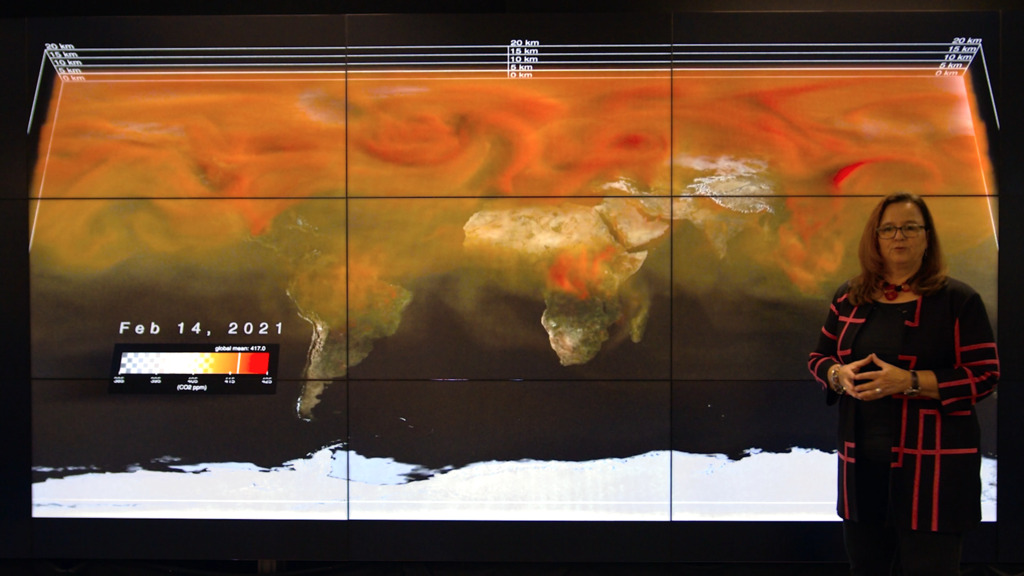Seasonal Global Precipitation Variation from the Global Precipitation Measurement Constellation
An animation of the most recent variation in global precipitation data from IMERG.
The Global Precipitation Meaurement (GPM) mission produces NASA's most comprehensive estimate of global rain and snowfall, the Integrated Multi-satellite Retrievals for GPM, or IMERG. IMERG is largely based on data from the GPM constellation - a group of satellites independently operated by many agencies that pool their data for global precipitation estimates. These satellites currently include the GPM Core Observatory, other U.S. civilian satellites (Aqua, NOAA-19, NOAA-20, Suomi NPP), U.S. defense satellites (DMSP F-16, DMSP F-17, DMSP- F18), and international agency satellites (GCOM-W1, Metop-B, Metop-C, and MeghaTropiques). The IMERG dataset starts in June 2000, providing a sufficiently long record that seasonal/regional averages, or climatology, can be computed with reasonable confidence. By comparing the progression of the observed precipitation with climatology, we can generate maps of showing how much observations depart from normal. In the animation, each day's variation from the average precipitation is added to the map, then allowed to gradually fade away over three months so that time changes in the larger-scale patterns are easier to see. Researchers sometimes refer to these deviations from the climatology as "precipitation anomalies".
Near realtime IMERG Anomaly data in Robinson projection.

An image of the most currently available global precipitation variation from IMERG.
Credits
Please give credit for this item to:
NASA's Scientific Visualization Studio
Huffman, G.J., E.F. Stocker, D.T. Bolvin, E.J. Nelkin, Jackson Tan (2019), GPM IMERG Late Precipitation L3 1 day 0.1 degree x 0.1 degree V06, Edited by Andrey Asvtchenko, Greenbelt, MD, Goddard Earth Sciences Data and Information Services Center (GES DISC), Accessed: 2021, 10.5067/GPM/IMERGDL/DAY/06
-
Animator
- Horace Mitchell (NASA/GSFC)
-
Data visualizer
- Alex Kekesi (Global Science and Technology, Inc.)
-
Scientists
- George Huffman (NASA/GSFC)
- Gail Skofronick Jackson (NASA/GSFC)
- Dalia B Kirschbaum (NASA/GSFC)
-
Producer
- Ryan Fitzgibbons (USRA)
Release date
This page was originally published on Monday, April 12, 2021.
This page was last updated on Saturday, April 26, 2025 at 1:04 AM EDT.
Series
This page can be found in the following series:Datasets used
-
IMERG
ID: 863This dataset can be found at: http://pmm.nasa.gov/sites/default/files/document_files/IMERG_ATBD_V4.4.pdf
See all pages that use this dataset
Note: While we identify the data sets used on this page, we do not store any further details, nor the data sets themselves on our site.
